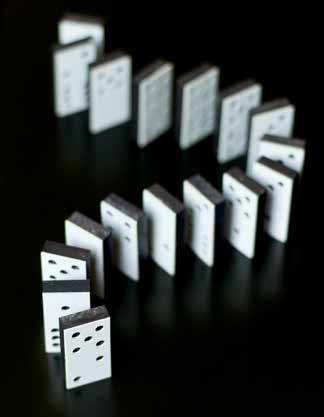COVID-19 pandemic has come as a bit of a bombshell for countries all over the world. No single country has ever thought that the damage it is causing will be utterly severe. Many sudden adjustments in all aspects were made to deal with the pandemic. The adjustments run not only on international and national matters but also – and even more closely felt – on a personal level, from casual circumstances such as work and social life to one of the most private aspects of human life; religious activities. The governments have instructed people to diminish public gatherings, which means that the congregational prayers and all communal-based religious activities should be halted. Last month was Ramadhan, the holy fasting month for all Muslims worldwide. This month is strongly associated with many social lessons and it was fascinating to see how the social messages were delivered during a time when social activities are limited. Yet, Ramadhan goes on, and even better the scholars utilised communalities value in Islamic society as the instrument to help fight COVID-19 impacts.
Particularly through Zakat optimisation. Muslim scholars from various countries urged the Muslim society to make the best use of Zakat to help those severely impacted by COVID-19.
The main and the most elementary idea from Muslim scholars (i.e. from Indonesia, Pakistan and the UAE) regarding Zakat is the release of the fatwa that Zakat may be used for COVID-19-related treatments. Furthermore, looking at the list of Asnaf (beneficiaries of Zakat) based on Al-Qur’an surah At-Tawbah verse 60, these beneficiaries are even more relevant following the COVID-19 pandemic. The list of eight Asnaf are: fakir (the poor); miskin (the needy); amil (zakat administrator); muallaf (newly convert to Islam); riqab (slaves); gharim (those in debt and cannot pay); fii sabilillah (those striving in the cause of Allah); and ibnu sabil (the traveller that has fallen short of funds during the journey).
Relating the list to COVID-19 pandemic, in general, all of sudden there is a significant increase in the number of people fulfilling the criteria to be the beneficiaries of Zakat. It is all due to the domino effect COVID-19 has caused. As people are forced to stay at home, the production and consumption are greatly impacted, the economy as a whole is crushed and many people must lose their job as a consequence. This loss of jobs has led some people to enter the ‘fakir’ and ‘miskin’ states. Those no longer having a job or facing a wage-cut may also fall into the ‘gharim’ condition, especially when these people having credit on house, car, or other instalments. The lesser income and the constant instalments due in amount and in time automatically make them fall into debts. COVID-19 has also caused a lockdown in several areas that makes people trapped in a place far away from their home, for some people with this case, it is just a matter of time until they run out of money and wealth thus making them ‘ibnu sabil’. Although the concluding decision upon criteria of each Asnaf category lies in the hand of local Muslim scholars, at least the initial signs indicate that the number of zakat beneficiaries this year may be skyrocketing.
Without a doubt, zakat is among the main instruments extremely needed bysociety, especially in these circumstances, as a last resort to stay alive. Zakat not only could put meals on their table, but also relieve the financial burdens and emotional distress of a family struggling to survive during this tough situation. Zakat is expected to bind the Muslim society together more than common prayers, which turns out to be restricted due to this pandemic. It teaches us to help those in the need and share what we have. Zakat is thus the glue that adds cohesiveness to any Muslim community.
Moreover, for a country like Indonesia, the largest Muslim population, which appears to be the most generous country of the World Giving Index in 2018, based on the worldwide survey from the Charities Aid Foundation (CAF), many are hoping that the society’s generosity could play its role at its best. This kind of generosity could help save the lives of those out of work who have no paid leave, health insurance or financial safety net. The World Bank and IDBG (2016) reported that the value of stand-alone zakat could reach potentially USD200 billion to USD1 trillion annually, not to mention the annual growth rate of ZIS, which could be around 38.34%, while the GDP growth is only 5.42%. Thus, it is not surprising that the government of many Muslim- majority countries is proposing to have an early collection of Zakat in order to contribute to the fight against corona. Considering the current conditions, the digitalisation of zakat today seems more relevant and crucial than ever. Aside from being a responsive effort of the digital revolution 4.0, digital zakat management turns out to have both benefits and conveniences that are more effective and efficient. As people are not allowed to go anywhere, it is inevitably crucial for the society and zakat institutions to optimise the utilisation of cash-less transactions.

The process of cash-less zakat transactions must be supported by the expansion of the range of collection services to the distribution of zakat funds to mustahik (zakat recipients). Not only could it increase the participation of the zakat payer, but also improve the transparency and accountability, which used to be the main issue for many zakat institutions. One of the tools to measure the transparency and accountability of an institution is to provide brief financial reports to beneficiaries. The existence of technology has been able to strengthen the governance of zakat management institutions to carry out the processes of accountability and transparency to stakeholders related to the government, the private sector and the community at large. Improved accountability and transparency is an important factor for gaining the society’s trust that is the soul of this institution.



